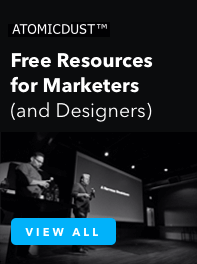Are You Playing Hide and Seek Online?
First off, I assure you this blog isn’t becoming a commentary on Facebook (note the previous posts Facebook Success Story: The Pickle and Facebook is Taking Over the World), but considering it is pretty much the biggest social media outlet out there (going on, if not already surpassing, 500 million users), it is kind of hard to ignore it.
For the last month or so, Facebook has been under fire for their privacy controls, or should I say, lack thereof. They’ve since admitted they ‘made a bunch of mistakes’ and improved their privacy page so that you have better control, but their issues uncovered a bigger question-
Does privacy exists online? Should it?
Whether you were reading articles about it on the Internet or debating it at SMCSTL, chances are, your opinion on the Facebook privacy debacle fell somewhere along these lines…
- Eh, who cares. Online privacy was dead a long time ago.
- OMG, they are giving away all my information! I’m quitting Facebook. Who’s with me?!
- What privacy issue?
Personally, I fall into the ‘A’ category. Perhaps it is my marketing mindset, but I’m online because I want to be seen. And if you are a business, you should be the same way.
The main reason you get online is for exposure. For businesses, you want people to see your website, your Twitter, your Facebook, wherever you are, so that they are more inclined to buy your product or service or visit your store or trust in your expertise. For personal accounts, you get online because you want to see and be seen by friends, family, potential employers, and even random strangers with shared interests.
Instead of asking if online privacy exists, I’ll ask you this- Why would you want to get online, just to hide?
Facebook CEO Mark Zuckerberg told Dan Fletcher of Time Magazine that “the mission of the company is to make the world more open and connected.” And, in my opinion, it’s working.
Nowadays, we are sharing more information about ourselves than ever before. In his Time article, How Facebok is Redefining Privacy, Fletcher writes, “Getting to the point where so many of us are comfortable living so much of our life on Facebook represents a tremendous cultural shift… Facebook has changed our social DNA, making us more accustomed to openness.”
Remember when everyone went by silly aliases instead of their real names? When was the last time you saw a sparkleprincess27 online? Maybe there are still people using identities like this, but more and more, people are using their real names (or some version of it, like my personal Twitter handle @daniellesmyname).
I’m all for being as real, as transparent as possible online. And it is important to take ownership for your identity and your brand before someone else does (case in point, @BPGlobalPR). You just have to be conscious of the fact that your online activity is a direct reflection of your offline identity- and that goes for both personal accounts and business accounts.
I think Nick O’Neill of All Facebook says it best in his post, Does Facebook Privacy Even Matter?:
“The true fact of the matter, despite the questions of how privacy settings should function, is that we are increasingly responsible for our behavior because the “public domain” has expanded dramatically. Facebook has been an enabler of this process, however they aren’t the only ones responsible for it… It won’t matter what Facebook does with their privacy settings, if you control your offline behavior, you can control your online behavior and safety as well.”
No matter what Facebook does with their controls, the reality is, if you’re online, people will be able to find you.
And that’s okay.
That is the whole purpose of the Internet. You should want people to find you.
 Danielle Hohmeier writes about marketing and design in the digital world for Atomicdust, with a focus on marketing convergence and social media.
Danielle Hohmeier writes about marketing and design in the digital world for Atomicdust, with a focus on marketing convergence and social media.

